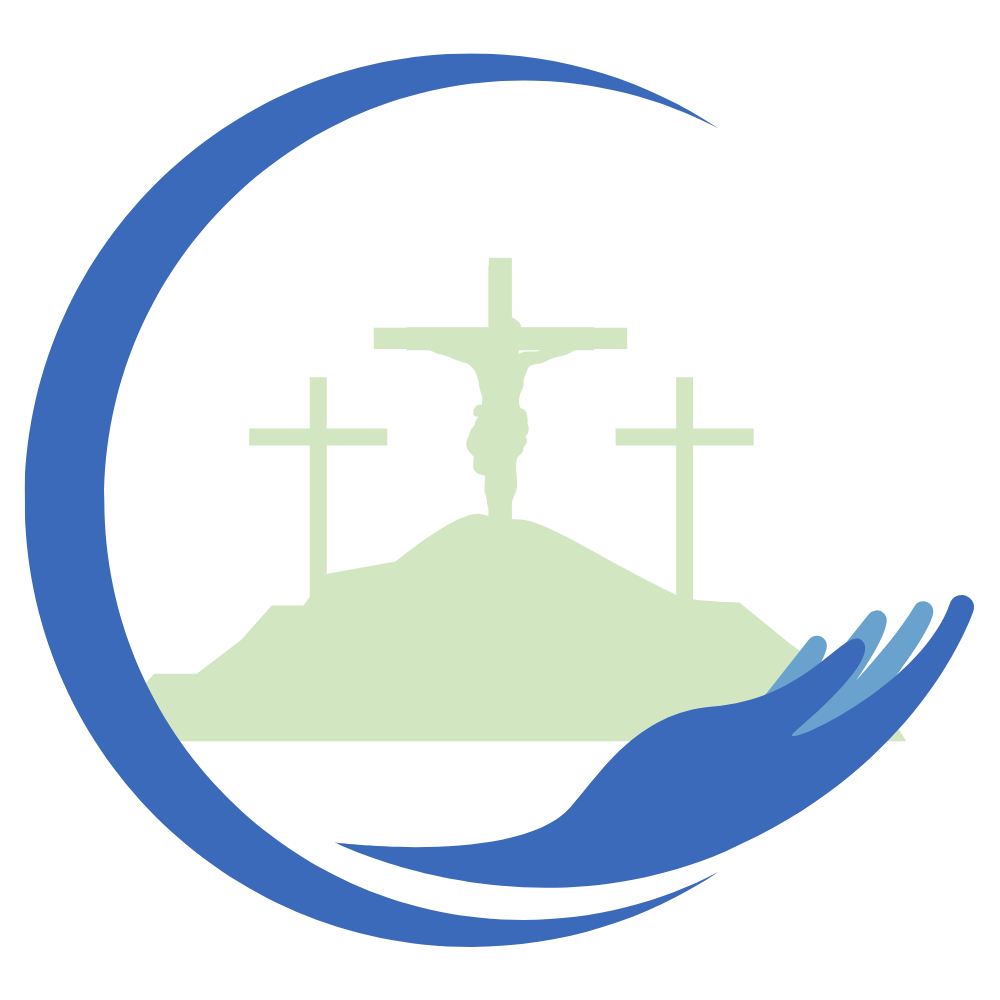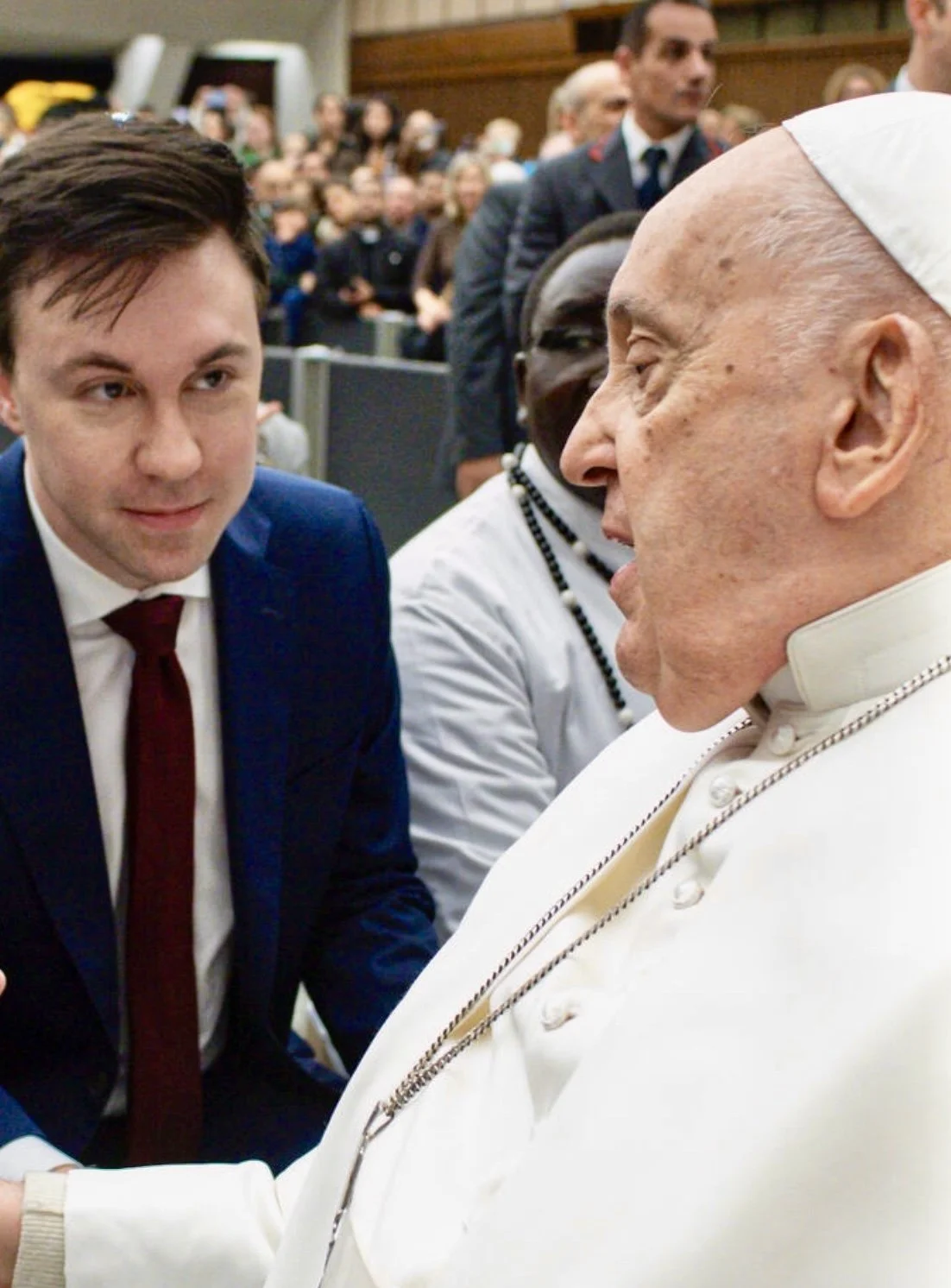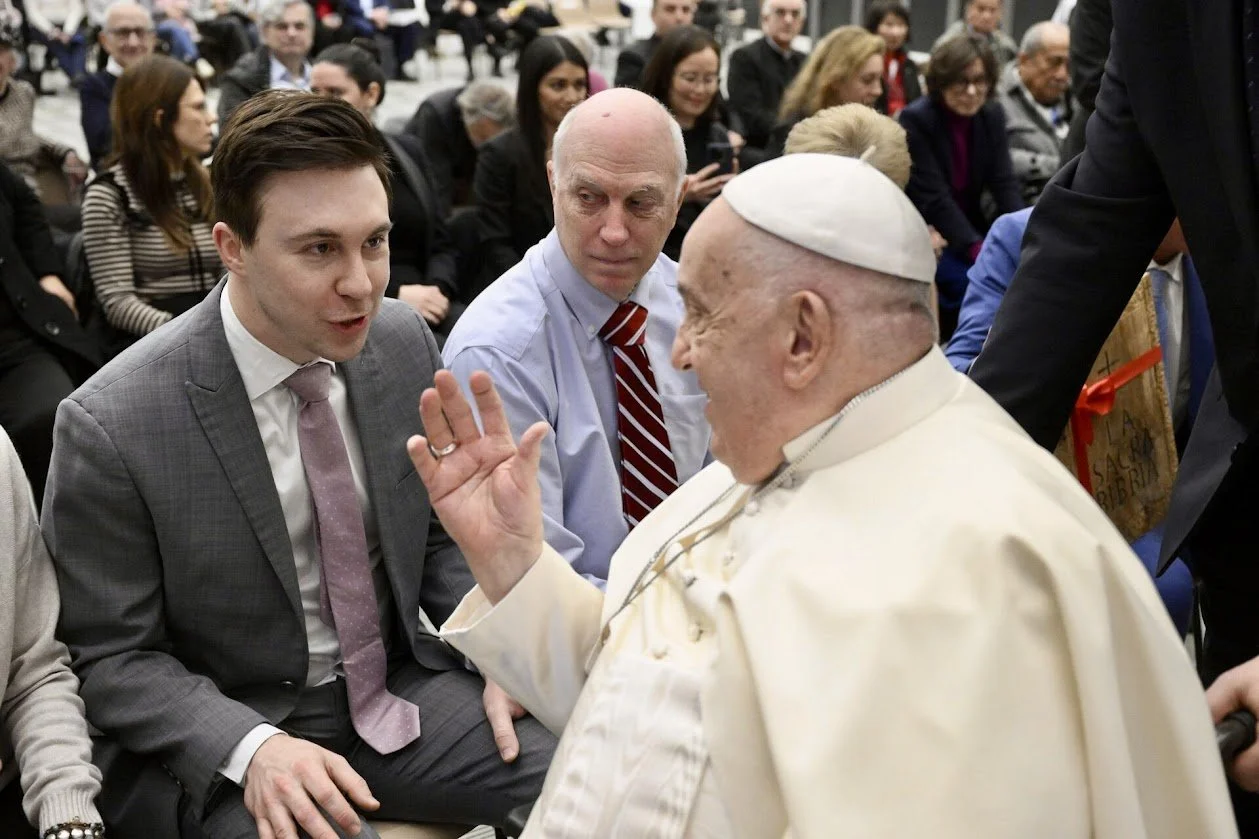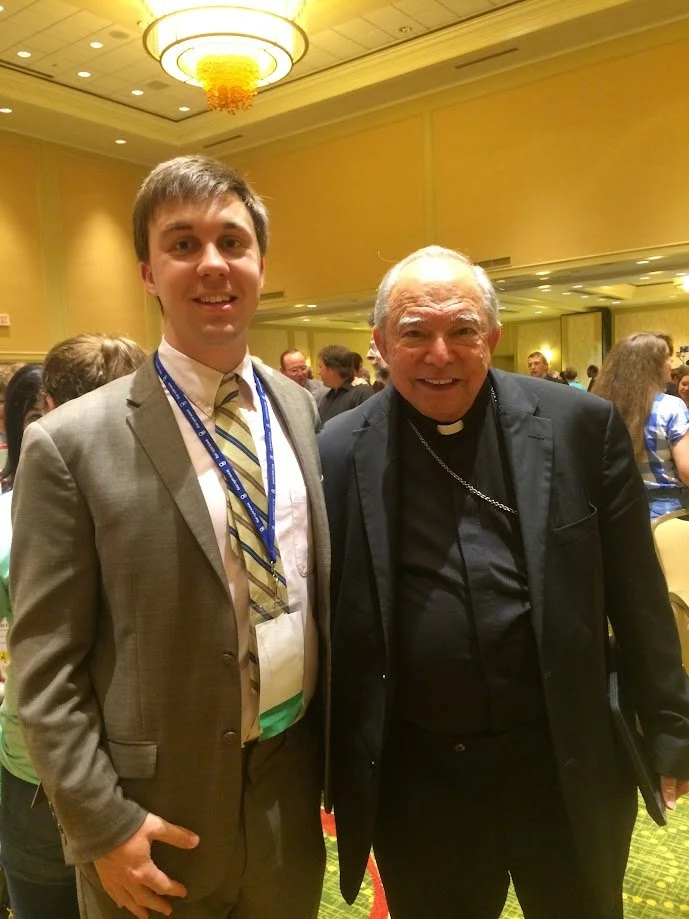My Story
I’m a lifelong Catholic and grew up with the Latin Mass, which I really appreciate. I love the beauty of our faith and how the Eucharist anchors me in truth in contrast to the crazy world we live in. And for many years, I have worked for pro-life and conservative causes.
I’m also gay, and surprisingly, that has no impact on how much I love the Catholic Church. Many of us have to learn to love the lives God blessed us with, and not the ones our younger selves dreamed of. And that has unexpectedly turned out to be the most fulfilling and wonderful realization I’ve ever had. It’s like the walk at Emmaus when the disciples finally recognized they had been talking with Jesus. The sacraments are so much deeper for me now.
As a teenager, I had inklings that others around me in the parish were also hiding secrets about themselves. But I was always told to defend the Church, so I didn’t ask questions. In confession at various places, I was told by four different priests that I wasn't gay, just experiencing same-sex attraction. Several immediately suggested I go find a vocations director (to ask about becoming a priest).
It was a relief to hear that I didn’t have to tell anyone about my secret attractions. The message was clear: gay priests aren’t allowed, but if we call it same-sex attraction it is different. It felt like a path to acceptance, something I deeply craved. And if my attractions are not a part of my identity, I don’t have to share it with anyone. After all, it would not be anyone’s business if I had asthma or heart problems.
Occasionally, at different places I bounced around to, some of the questions in confession felt inappropriate. But the absolution and sense of belonging were so powerful that I didn’t question them.
I was told that sexuality isn’t a core part of who we are, but rather fleeting desires to be mastered. Like many, I defended the Church, even when it meant keeping quiet about certain issues.
Then the news about Cardinal McCarrick’s alleged abuses became public.
Over time, I realized how complex we all are. Perhaps the reason so many struggle with self-mastery, especially in moments of loneliness, is because we’re denying a part of themselves. Addictions are a serious problem within the Church, and this likely contributes. If you’ve felt like we obsess a lot about “vice” it’s because we obsess about ourselves, and teaching people the word no is a lot easier than building up a world of virtue. Virtue isn’t about rigid discipline; it’s about encountering God’s grace and working with it.
Sexual orientation isn’t a temporary feeling; it’s a fundamental aspect of who a person is. Hiding parts of ourselves contradicts the principle of truth.
Working with the Catholic Church globally, I’ve seen how different cultures approach these issues. In places where you have a lot of denominations and religions to choose from, the focus becomes on keeping families together. Over time, “discipline” takes precedence over theological principles.
That’s what I want to address.
I’m not trying to change Church doctrine or encourage anyone to water down their faith. It’s time to go deeper. My goal is to help people understand themselves as God created them and find ways to integrate their lives fully, even when their local Catholic community might not accept them. I base my approach on Catholic teachings and how theologians have employed these principles within various cultures. A truly universal faith shouldn’t sound distinctly American. It’s clear that our methods here are different, even when our ultimate goals are the same.
Almost weekly, someone shares their story with me because my experiences, while not often discussed, are common.
My hope is that this podcast will help listeners understand God’s love for them more deeply and honestly. Authenticity can be painful, but it’s worth it. It’s a purifying process. This is Theology for the Unwanted.
-Dan
Working at the National Right to Life Conference 2014





